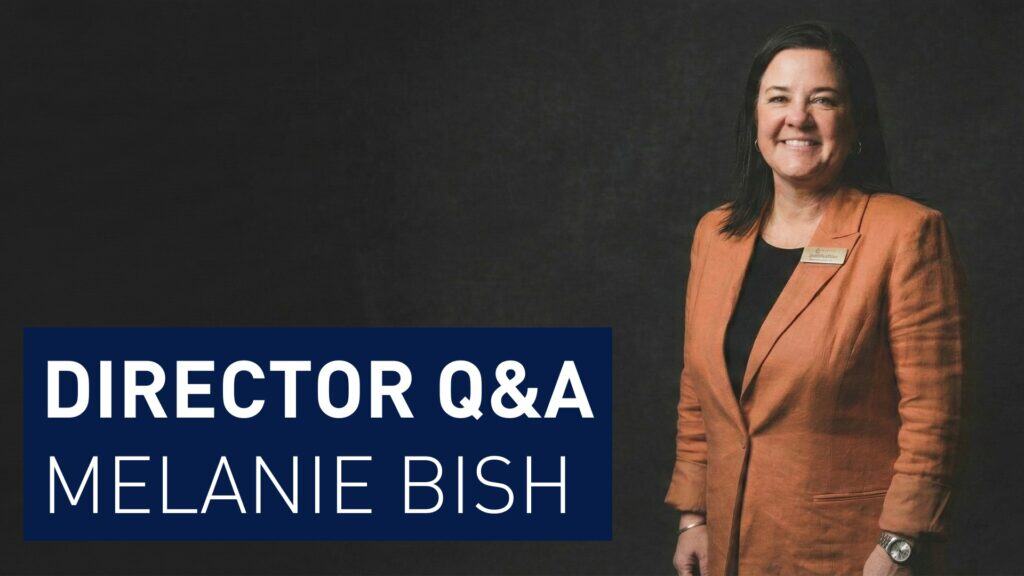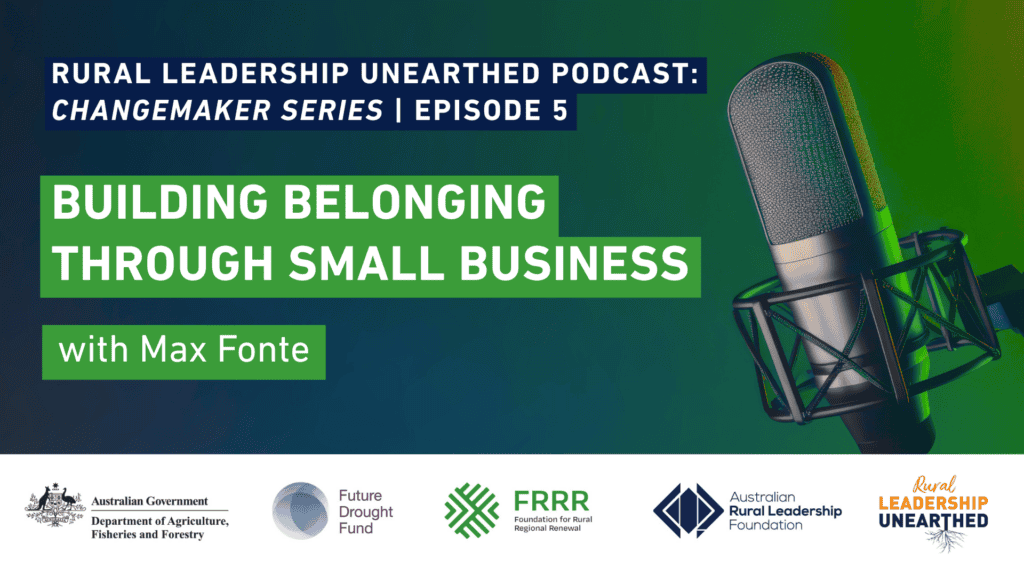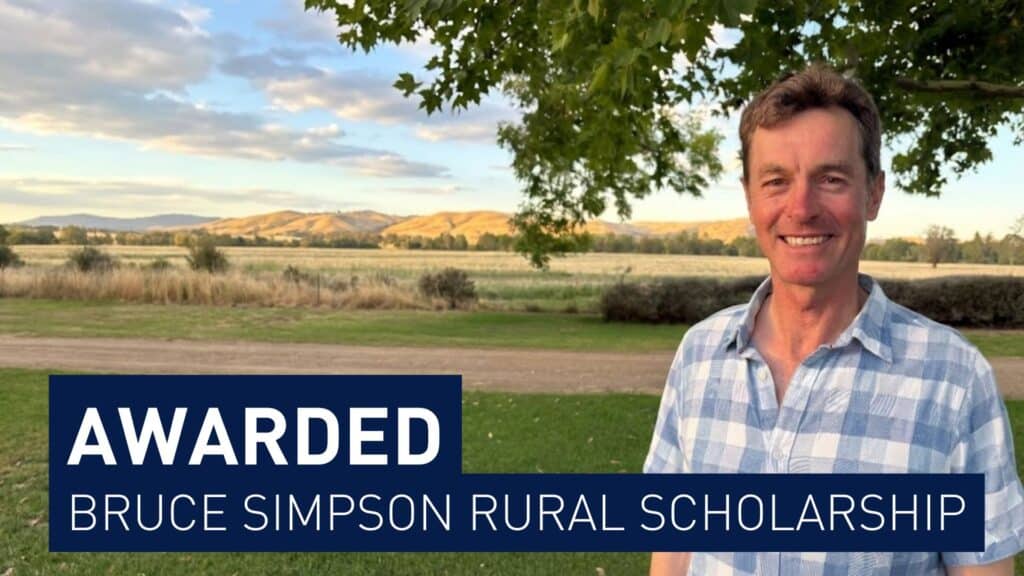Attracting and retaining health professionals in rural and remote Australia is a huge challenge that one group of Australian Rural Leadership Program (ARLP) graduates are doing their bit to tackle.
Five leaders from ARLP Course 29 with exposure to the health sector have designed a project that aims to leverage technology to support health professionals living and working in regional communities.
South Gippsland dairy farm manager Aaron Thomas, Broken Hill dentist Tom Cocks, and La Trobe University’s Pro Vice Chancellor (Regional) Melanie Bish each have a unique stake in building health care capacity in and beyond their local communities. The leaders agree they took a large ‘bite’ in looking to address health worker retention in our regions, before zeroing in on the universe of mobile applications at our disposal to offer a solution.
‘Bush Tinder’ for health care workers
“When we did our field research, ‘connection’, ‘loneliness’ – all these words kept popping up as a common thread,” Aaron says. “We found that people going to work in remote and regional areas would tend to do their stint and just get out of there. They didn’t feel a strong connection to the community, or that they had support networks.”
In order to help people feel that they are part of a community from the moment they arrive, Aaron, Tom and Melanie – along with fellow group members Erin Lew Fatt and Eugene Wong – decided the premise of a (platonic) ‘Bush Tinder’ would help people find local interest groups and connect with professional peers.
Rather than develop an app from scratch, the group identified the opportunity to collaborate. They are working on a proposal to expand the functional design of an existing app which supports peer connection and professional development for health professionals (initially funded by the NSW Rural Doctors Network).
As a trained nurse and mental health advocate, Aaron draws on his own experience of mental ill health to support others in his industry and community. He understands the critical importance of connection if people are to thrive in a rural, regional or remote environment where they may struggle to develop a supportive network.
“Connection is everything.” He says. “We have to close the loop and give professionals who have moved to or are working in regional Australia something to tap into.”
A global issue to be solved one piece at a time
Melanie Bish has had a long time to study the prosperity, health and liveability of regional communities. As a child, she relocated often to rural Victorian towns with her parents due to her dad’s work as a school principal. She then worked regionally as a registered nurse, a clinical educator, health service manager and completed a PhD on fostering rural nurse leadership. Now, from her vantage point in higher education she has unique insight into the value created when someone chooses to study or work in regional Australia.
“Attracting and retaining health professionals is a wicked problem … when you think about rural, regional and remote prosperity, the health of a community is vital. If people can’t access good health care, they leave.”
While there are some policies and campaigns focused on recruitment in medicine, Melanie says allied health services as well as nursing and midwifery tend to be the backbone of a rural health service and need tailored support too.
“We refined our project to think about how we might support a transient work force and found that it’s about connectedness in community and the creation of cultural and social capital.”
And while findings make it clear that relocating health professionals are unlikely to stay in a rural community forever, greater levels of satisfaction will lead to longer tenures and better outcomes for the community.
“Making sure our rural health workforce knows how to connect to rural communities and their nuances is important – place-based knowledge is key to gaining access to a community and making your own positive mark on it. Providing access to professional development and opportunities for progression also make a big difference,” Melanie says.
It links back to leadership at all levels, fostering clear values alignment about what a community can do to create the opportunities and experiences that help a health professional decide to stay.
Rural, regional and remote Australians deserve high quality health care
For Tom Cocks, watching his father, ARLP Course 13 alum Greg Cocks, develop a sophisticated dental practice in Broken Hill set a high bar for the standard of health care possible in rural Australia. While he has practiced clinical dentistry on Sydney’s Macquarie Street, Tom knows the job satisfaction of caring for a rural community. Although his father no longer works alongside him, Tom is carrying on a commitment to provide high quality, equitable care for the outback NSW town of around 17,000 people.
“Patients value having stability with their carers wherever they live … it can be far more rewarding working in regional communities where people really appreciate the level of care they receive,” he says.
However, even with strong financial incentives and a positive work environment, retaining dentists in a rural community for more than a year or two remains a challenge.
Combatting burnout
“Burnout is a real thing. Being rural is isolating being away from family and friends, even if you are embraced by a community,” Tom says.
With dental practitioners experiencing their own mental health crisis and high rates of suicidal ideation, it’s a tough job made tougher by isolation.
“The prototype we’ve come up with has involved a learning process for all of us. It’s a huge challenge to tackle health workforce retention, but we know the common threads.
“Dentists who head to rural areas tend to not be afraid of a challenge and want to do something meaningful. From the outside, it can look like a quiet and isolating space, but until you’re in the community and in the thick of it, you don’t realise what it’s like to come out here. That’s why having an app help you navigate finding your place adds a big layer of support when you move.”
The group hopes that by augmenting existing app infrastructure that introduces a holistic model of support for health carers in rural communities, they will demonstrate an effective model replicable across the country.





